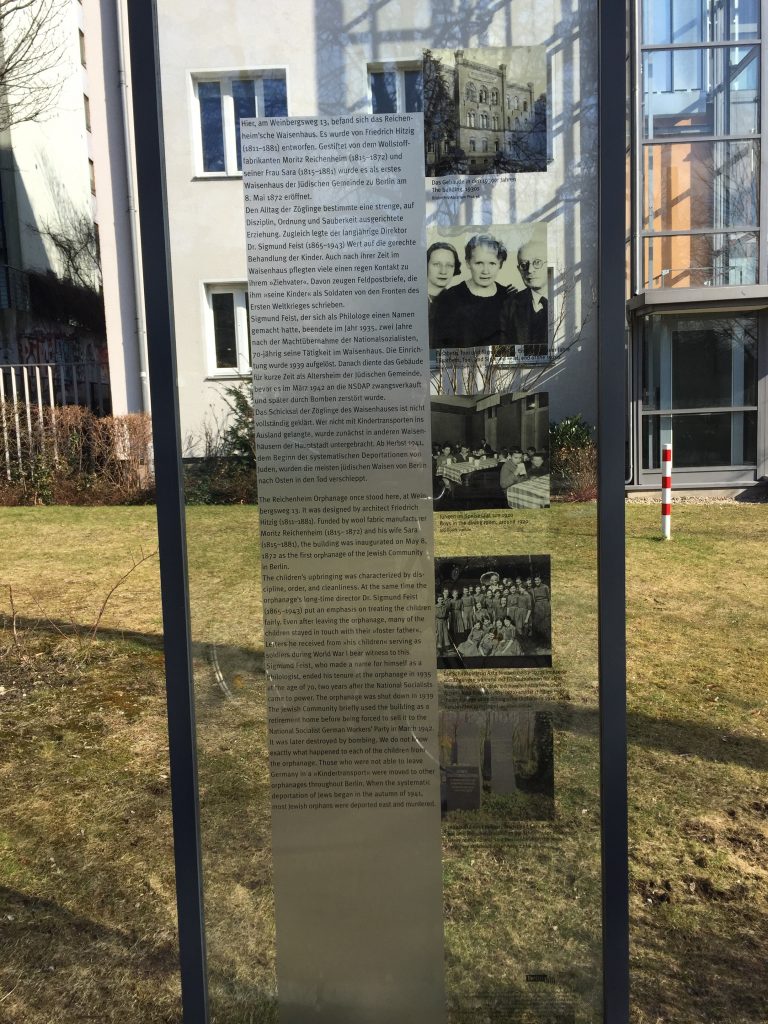Never finished, always relevant. I must have started writing this poem last fall on the way to Mauerpark here in Berlin—a now-vibrant park that on warm Sundays bursts with relaxing young people and families, busking musicians (some really amazing), graffiti artists, slackliners and slackers, food vendors and flowers, that was once part of the Berlin Wall and its Death Strip. Spring is almost here…
“Walking to Mauerpark”
Steel supports like blades of grass
stretch up to crane-cut clouds
on the old school’s rooftop. They look
like easel spines between paintings
like giraffes pointing noses at a changing sky
and like the steel supports in the field near Mauerpark
nearby, stretching up and back into history,
marking where the concrete chunks
were carried off, for resale or for memory.
Also along the way and easier to miss,
small bronze tiles break sidewalks
with names, dates taken, dates killed.
This one was the doctor who built the orphanage.
That one, his infant daughter.
His wife, her mother. His son, her brother.
Elsewhere, such steel spokes and small marked stones
silently sit and do not stir in walls and under dirt.
But here they are bare in the biting air
as if the past were present,
as if the Wall and Die Wende had been a dream,
and as if all rewritten stories are not what they seem.
Layers of trauma sift like this,
from the German traüme—to dream
and not know how to remember different times.
The steel spokes in the brain stand up,
lattices of memories we must make fiction to tell
and so cannot clear up with words—
are yet filled in. Marked stones filed and misfiled
scatter, cannot be secured on crumbling walls.
In this deconstruction, landmarks can comfort or alarm.
For some the spokes and stones are solace.
Remembered deaths were not in vain.
Remembering helps us rise again
toward something better—
the idea of freedom,
the possibility of better dreams,
the melting of old into new.
Not leaving the past to be true.
For others, sadness:
touching the cold plaques
caressing the bent shoulder of the past
with nothing whole there to retrieve
yet impossible to leave
as its distance closes in
as the empire cries sin
and as we wonder how long their warning will last.
For its part, all this steel and stone
wishes us neither solace nor sadness.
Our mementos will be another’s clues
as to our fatal madness.
